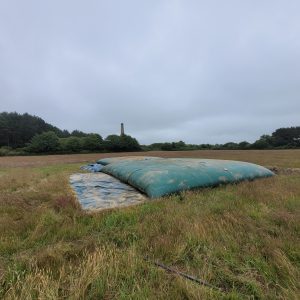Essential guidance for obtaining and maintaining community acceptance and stakeholder support
Many minerals and metals are required to support the current shift away from fossil fuels and towards the implementation of low-carbon technologies, electrification and improved energy storage, as well as the ongoing digital transformation. The minerals and metals that are the most important economically and have a high supply chain risk are often collectively called critical raw materials (CRMs).
Although historically CRMs have been produced by traditional mining and recycling methods, extracting them from geothermal waters represents a new way of supplementing or replacing materials produced by traditional mining, with the prospect of reducing the environmental, social and societal risks and negative impacts associated with mineral and metal production.
The Critical Success Factor: Social License to Operate
The successful development and operation of combined extraction projects is underpinned by obtaining and maintaining a social licence to operate (SLO) from local communities and other relevant stakeholders. SLO reflects the degree to which a company and its activities meet the expectations of local communities and other stakeholders throughout the life of a project.
However, while there is a wealth of academic research on the theoretical basis for SLO, there is little guidance on how to obtain and maintain SLO and integrate such activities with wider stakeholder strategies.
The objective of these Guidelines, developed by the EU-funded CRM-geothermal project, is to distil the large volume of research into practical guidance that project staff can use in planning their day-to-day activities. Making them publicly available means the Guidelines also serve to inform stakeholders of what they should expect from responsible combined extraction projects.
What These Guidelines Provide
This guidance is presented in two comprehensive sections: the principles that underpin SLO and a range of potential approaches to obtaining and maintaining SLO.
The Seven Core Principles
- Ensure legal compliance – Although complying with laws and regulations is not the same as SLO, the latter is not possible without the former.
- Do no harm – In effect, the implementation of appropriate measures to protect health, safety, the environment and internationally recognised human rights.
- Employ engagement experts early – Ensuring activities to obtain and maintain SLO are integrated with project activities from the earliest possible point in the project lifecycle.
- Understand a project's context – The specific cultural, historical, political, economic, environmental and social context that can influence the concerns and view of local communities and other stakeholders.
- Identify and engage stakeholders – These are the individuals, groups or institutions that have a direct or indirect interest in, and can impact or be affected by, a project.
- Communicate honestly and transparently – SLO is closely linked to trust, legitimacy and credibility with communities and therefore stakeholders expect those leading a project to be honest and transparent about what it is doing and why, the likely risks, negative impacts and benefits, making information and data available and accessible on a consistent, ongoing and frequent basis.
- Understand stakeholder concerns and views – Acknowledging that stakeholder concerns and views may be quite different from a project's own analysis of risks, negative impacts, opportunities and benefits.
If a project fails to consider or apply these principles, it is likely to find obtaining and maintaining SLO more complicated, time-consuming and expensive.
Three-Phase Implementation Approach
- Phase 1: Preparation – Getting ready by identifying stakeholders, identifying and assessing risks and negative impacts and how these differ from stakeholder perceptions, and defining the benefits and opportunities a project is expected to deliver. This stage may also include building internal and external capacity for stakeholder engagement, ensuring all parties are able to engage meaningfully.
- Phase 2: Engaging effectively and obtaining SLO – Developing clear communication materials and effective methods of engagement, tracking progress and ensuring available resources are used as efficiently as possible.
- Phase 3: Maintaining SLO – Continuing to conform with the underlying principles and implement stakeholder engagement processes and activities, recognising that some aspects may need to be adapted as the project evolves, or remedial actions developed when issues arise.
Global Applicability
The Guidelines have been developed as part of a project funded by the European Union (EU), a region where regulations, governance and wider societal context collectively represent a stringent framework that limits the potential for industrial projects to cause harm.
Nevertheless, with appropriate adaptation, the Guidelines may be useful in other regions and countries, where differences in regulatory frameworks, legal enforcement capacity and cultural, socio-economic and natural environment contexts may represent a different set of challenges to those seen in the EU.
Usefulness outside the EU is based on the core concepts of establishing legitimacy, credibility and trust to build SLO, which are relevant everywhere in the world
About the CRM-geothermal project: The EU-funded CRM-geothermal project proposes to combine the extraction of raw materials and geothermal heat, a renewable energy resource from the ground that is available 24 hours a day. Views and opinions expressed are however those of the author(s) only and do not necessarily reflect those of the European Union or HADEA. Neither the European Union nor the granting authority can be held responsible for them.



